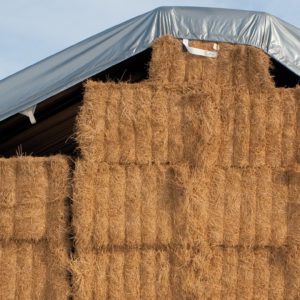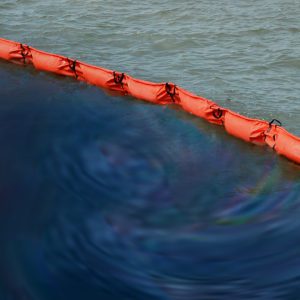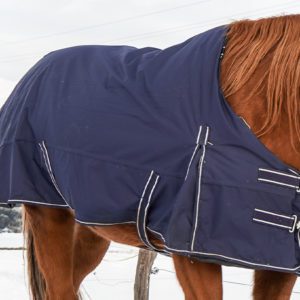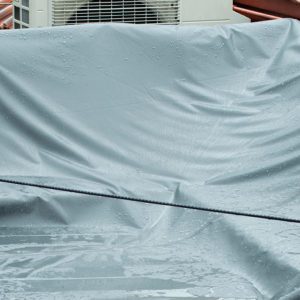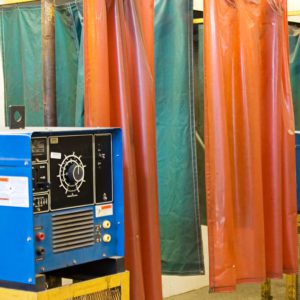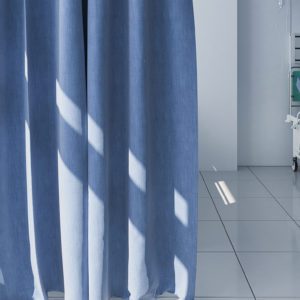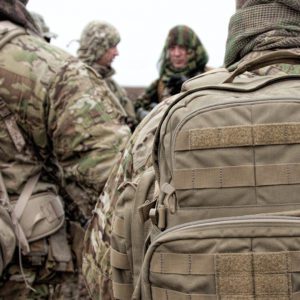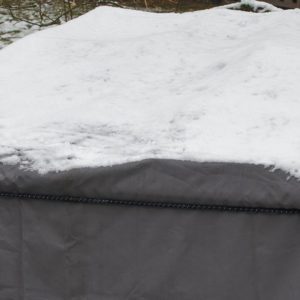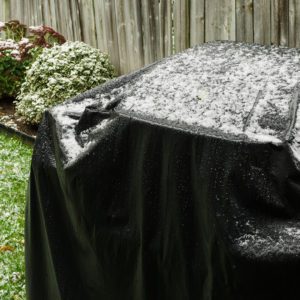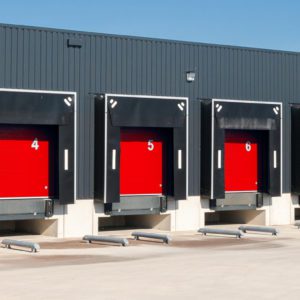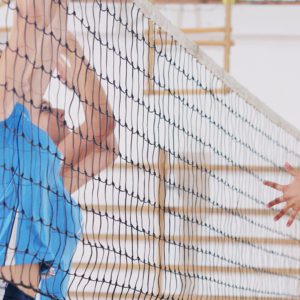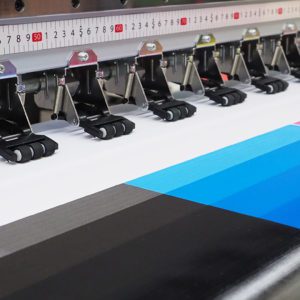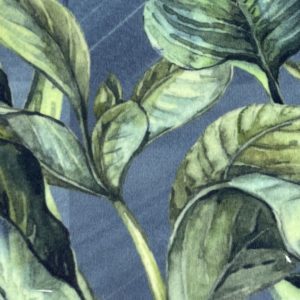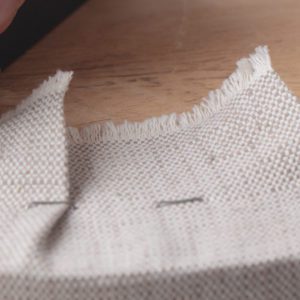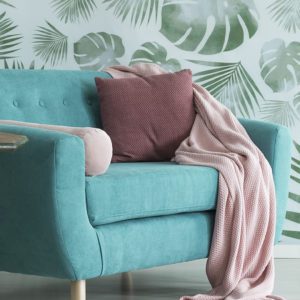Vinyl-coated fabrics used in industrial settings are tested for essential mechanical and durability properties to make sure they meet the required specifications. These tests help confirm the material’s suitability for industrial applications. While there are many specialized tests available, the following represent the most common for industrial vinyl fabrics.
Tensile Strength (ASTM D5034 and D5035): Tensile strength measures how much force the fabric can withstand before breaking. Results are typically reported for both the warp and fill directions.
Grab Tensile (ASTM D5034) uses clamps to grip the fabric and pull until it fails. Reported values: 753 lb. (warp) and 765 lb (fill).
Strip Tensile (ASTM D5035) tests a uniform strip of fabric under tension. Example from TVF’s Reported values: 496 lb (warp) and 524 lb (fill).
Tear Resistance (ASTM D2261) measures how well the fabric resists further tearing once a cut or puncture has started. This is critical for preventing failure in field conditions. Tongue tear results: 165 lb (warp) and 213 lb (fill)
Adhesion of Coating (ASTM D751) measures the bond between the vinyl coating and its polyester base. Strong adhesion ensures the layers do not delaminate during use. Adhesion strength: 24 lb
Abrasion Resistance (ASTM D3389) uses an H-22 wheel and specific pressure over 12,000 cycles to assess surface durability. In this case, no yarns were exposed, indicating excellent resistance to wear and surface damage.|
Cold Crack Resistance (ASTM D751) evaluates the fabric’s flexibility and integrity at extremely low temperatures. The material showed no cracking at -40°F, making it suitable for use in cold climates or unheated outdoor environments.
